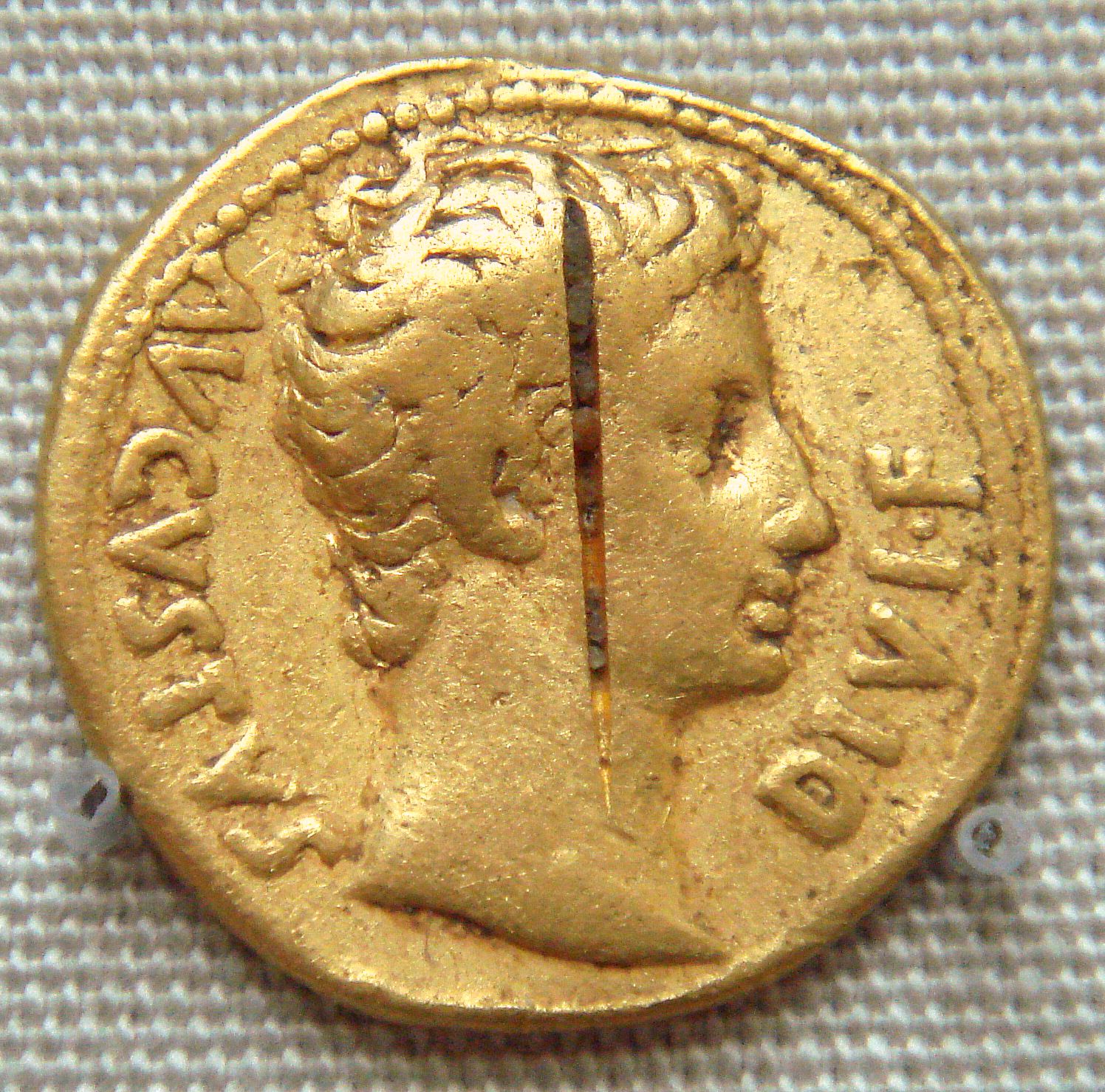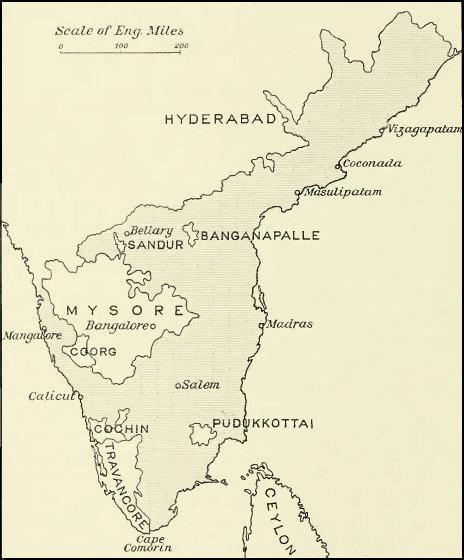|
Vijaya Raghunatha Raya Tondaiman II
Vijaya Raghunatha Raya Tondaiman (c 1797 - 4 June 1825) was the ruler of the princely state of Pudukkottai from 1 February 1807 to 4 June 1825. Early life Vijaya Raghunatha Raya Tondaiman was born in 1797 to Vijaya Raghunatha Tondaiman, Raja of Pudukkottai, and his second wife, Rani Ayi Ammani Ayi Sahib Avargal in Pudukkottai and was educated by a private tutor. He was the elder of two sons of Vijaya Raghunatha Tondaiman who survived him. Reign Vijaya Raghunatha Raya Tondaiman ascended the throne on 1 February 1807 on the death of his father, Vijaya Raghunatha Tondaiman Raja Sri Vijaya Raghunatha Tondaiman Bahadur (c May 1759 – 1 February 1807) was the ruler of the pudukottai kingdom from 30 December 1789 to 1 February 1807. Early life Vijaya Raghunatha Tondaiman was born in May 1759 to Thirumalai Raya To .... The administration as in the hands of a Council of Superintendence headed by the Resident of Tanjore, William Blackburn till 1817, when Vijaya Raghunatha ... [...More Info...] [...Related Items...] OR: [Wikipedia] [Google] [Baidu] |
Vijaya Raghunatha Tondaiman
Raja Sri Vijaya Raghunatha Tondaiman Bahadur (c May 1759 – 1 February 1807) was the ruler of the pudukottai kingdom from 30 December 1789 to 1 February 1807. Early life Vijaya Raghunatha Tondaiman was born in May 1759 to Thirumalai Raya Tondaiman Sahib and was educated privately. Reign Vijaya Raghunatha Tondaiman succeeded to the throne on the death of his first cousin, Raya Raghunatha Tondaiman, the Raja of Pudukkottai without any male heirs. Vijaya Raghunatha's reign was a period of incessant wars in South India. Vijaya Raghunatha supported the British in the wars and in return for his services, he was given the title "Raja Bahadur" by Muhammed Ali Khan Wallajah, the Nawab of the Carnatic on 17 October 1796. Vijaya Raghunatha played a pivotal role in Polygar Wars leading to the capture and arrest of Veerapandiya Kattabomman and his brother Oomaithurai by the British. The British recognized his services by handing him the territory of Kilanilai in 1803. The Thanjavur ... [...More Info...] [...Related Items...] OR: [Wikipedia] [Google] [Baidu] |
Raghunatha Tondaiman II
Raja Sri Raghunatha Tondaiman Bahadur (c. 1798 – 13 July 1839) was the ruler of the princely state of Pudukkottai from 4 June 1825 to 13 July 1839. Early life Raghunatha Tondaiman was born in 1798 to Vijaya Raghunatha Tondaiman, Raja of Pudukkottai, and his second wife, Rani Ayi Ammani Ayi Sahib Avargal in Pudukkottai and was educated by a private tutor. Raghunatha was the youngest of two sons of Vijaya Raghunatha Tondaiman who survived him. Raghunatha Tondaiman succeeded to the throne on the premature death of his elder brother Vijaya Raghunatha Raya Tondaiman II in June 1825. Reign Raghunatha Tondaiman reigned for 14 years from his coronation on 20 July 1825. His reign was largely uneventful. In 1837, Raghunatha Tondaiman suggested a scheme to bring Cauvery River water into Pudukkottai state but could not execute it due to lack of funds. Raghunatha Tondaiman was permitted the style "His Excellency" on 2 April 1830 along with a 17-gun salute. Family Raghunatha was ... [...More Info...] [...Related Items...] OR: [Wikipedia] [Google] [Baidu] |
Pudukkottai
Pudukkottai is the administrative headquarters of Pudukkottai District in the Indian state of Tamil Nadu. It is a large city located on the banks of the Vellar River. It has been ruled, at different times, by the mutharaiyar dynasty , Cholas, Early Pandyas, Thondaimans, and the British. It is situated about southwest of the state capital Chennai and about southeast of Tiruchirappalli. Tamil Nadu's first woman Asian Games competitor, Santhi Soundarajan, is from Pudukkottai. Being the district headquarters, Pudukkottai has district administrative offices, besides government educational institutes, colleges, and schools. Pudukkottai is a part of the Pudukkottai constituency and elects its member to the legislative assembly every five years; and is a part of the Lok Sabha constituency comprising Ramanathapuram, Sivaganga, Tiruchirappalli and Karur. The city is administered by a selection-grade municipality established in 1912 as per the Municipal Corporation Act. Pudukkottai co ... [...More Info...] [...Related Items...] OR: [Wikipedia] [Google] [Baidu] |
Pudukkottai State
Pudukkottai was a kingdom and later a princely state in British India, which existed from 1680 until 1948. The Kingdom of Pudukkottai was founded in about 1680 as a feudatory of Ramnad and grew with subsequent additions from Tanjore, Sivaganga and Ramnad. One of the staunch allies of the British East India Company in the Carnatic, Anglo-Mysore and Polygar wars, the kingdom was brought under the Company's protection in 1800 as per the system of Subsidiary Alliance. The state was placed under the control of the Madras Presidency from 1800 until 1 October 1923, when the Madras States Agency was abolished, and until 1948 it was under the political control of the Government of India. Pudukkottai State covered a total area of and had a population of 438,648 in 1941. It extended over the whole of the present-day Pudukkottai district of Tamil Nadu (with the exception of Aranthangi taluk which was then a part of Tanjore district). The town of Pudukkottai was its capital. The ruler o ... [...More Info...] [...Related Items...] OR: [Wikipedia] [Google] [Baidu] |
1797 Births
Events January–March * January 3 – The Treaty of Tripoli, a peace treaty between the United States and Ottoman Tripolitania, is signed at Algiers (''see also'' 1796). * January 7 – The parliament of the Cisalpine Republic adopts the Italian green-white-red tricolour as the official flag (this is considered the birth of the flag of Italy). * January 13 – Action of 13 January 1797, part of the War of the First Coalition: Two British Royal Navy frigates, HMS ''Indefatigable'' and HMS ''Amazon'', drive the French 74-gun ship of the line '' Droits de l'Homme'' aground on the coast of Brittany, with over 900 deaths. * January 14 – War of the First Coalition – Battle of Rivoli: French forces under General Napoleon Bonaparte defeat an Austrian army of 28,000 men, under ''Feldzeugmeister'' József Alvinczi, near Rivoli (modern-day Italy), ending Austria's fourth and final attempt to relieve the fortress city of Mantua. * January 26 – Th ... [...More Info...] [...Related Items...] OR: [Wikipedia] [Google] [Baidu] |
1825 Deaths
Eighteen or 18 may refer to: * 18 (number), the natural number following 17 and preceding 19 * one of the years 18 BC, AD 18, 1918, 2018 Film, television and entertainment * ''18'' (film), a 1993 Taiwanese experimental film based on the short story ''God's Dice'' * ''Eighteen'' (film), a 2005 Canadian dramatic feature film * 18 (British Board of Film Classification), a film rating in the United Kingdom, also used in Ireland by the Irish Film Classification Office * 18 (''Dragon Ball''), a character in the ''Dragon Ball'' franchise * "Eighteen", a 2006 episode of the animated television series ''12 oz. Mouse'' Music Albums * ''18'' (Moby album), 2002 * ''18'' (Nana Kitade album), 2005 * '' 18...'', 2009 debut album by G.E.M. Songs * "18" (5 Seconds of Summer song), from their 2014 eponymous debut album * "18" (One Direction song), from their 2014 studio album ''Four'' * "18", by Anarbor from their 2013 studio album '' Burnout'' * "I'm Eighteen", by Alice Cooper commonly ... [...More Info...] [...Related Items...] OR: [Wikipedia] [Google] [Baidu] |
Hindu Monarchs
Hindus (; ) are people who religiously adhere to Hinduism.Jeffery D. Long (2007), A Vision for Hinduism, IB Tauris, , pages 35–37 Historically, the term has also been used as a geographical, cultural, and later religious identifier for people living in the Indian subcontinent. The term ''"Hindu"'' traces back to Old Persian which derived these names from the Sanskrit name ''Sindhu'' (सिन्धु ), referring to the river Indus. The Greek cognates of the same terms are "''Indus''" (for the river) and "''India''" (for the land of the river). The term "''Hindu''" also implied a geographic, ethnic or cultural identifier for people living in the Indian subcontinent around or beyond the Sindhu (Indus) River. By the 16th century CE, the term began to refer to residents of the subcontinent who were not Turkic or Muslims. Hindoo is an archaic spelling variant, whose use today is considered derogatory. The historical development of Hindu self-identity within the local In ... [...More Info...] [...Related Items...] OR: [Wikipedia] [Google] [Baidu] |



.jpg)